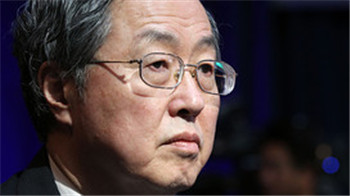(单词翻译:单击)

China’s stock market has almost completed its correction after a bubble formed in the first half of the year, according to remarks to G20 finance ministers by Zhou Xiaochuan, governor of China’s central bank.
根据中国央行行长周小川对20国集团(G20)财长发表的言论,中国股市在上半年形成泡沫后,现已大致调整到位。
Sharp drops in the country’s equities after a debt-fuelled rise earlier in the year have spooked domestic and international investors and forced Beijing to launch a raft of policies aimed at stemming further losses. Chinese stock markets are down nearly 40 per cent from their June peak.
中国股市在今年早些时候出现保证金融资助推的上涨行情,但随后大幅下滑,吓坏了国内和国际投资者,迫使北京方面出台一系列政策以求遏止进一步下跌。相对于6月达到的高峰,中国股市已下跌近40%。
In remarks at the G20 in Turkey, the People’s Bank of China quoted Mr Zhou as saying: “At present, the exchange rate of the renminbi against the dollar is stabilising, the correction in the stock market is already mostly over and the financial markets show hope for stabilising.”
中国人民银行(PBoC)引述周小川在G20土耳其会议上发表的讲话称:“目前,人民币兑美元汇率已经趋于稳定,股市调整已大致到位,金融市场可望更为稳定。”
Mr Zhou acknowledged that “before June, the Chinese stock market bubble grew continuously”, but added that of the three major corrections since June, only the most recent in mid-August had a global impact. Chinese government action had prevented further slides and systemic risks, he added.
周小川承认,“今年6月中旬以前,中国股市泡沫不断积累”,但补充说,在6月中旬以来中国股市发生的三轮调整中,只有8月下旬的第三轮调整产生了一些全球性影响。他接着说,中国政府的措施避免了股市断崖式下滑和系统性风险发生。
“Following the correction, levels of leverage are clearly lower and there has been no notable effect on the real economy,” he added.
“股市调整以来,杠杆率已明显下降,对实体经济也未产生显著影响,”他补充道。
The PBoC issued its paraphrased transcript of Mr Zhou’s remarks only after Taro Aso, Japanese finance minister, told reporters that Mr Zhou had three times used the term “burst” referring to the stock market bubble. The Chinese transcript uses the more decorous term “correction”, and refers to a “bubble” only once.
此前日本财务大臣麻生太郎(Taro Aso)告诉记者,周小川三次使用“破裂”这个词描述股市泡沫。在这之后,中国央行才发布经过整理的周小川发言记录。中文稿使用了比较委婉的“调整”一词,并且只有一次提到“泡沫”。
Finance ministers and central bankers in the G20 on Saturday supported China’s argument that changes to its state-managed currency peg last month were a step towards a more market-determined exchange rate.
上周六,各国财长和央行行长在G20会议上纷纷支持中国的说法,即上月出台的对于有管理汇率形成机制的改革,是向着在更大程度上由市场决定汇率的目标迈出的一步。
The sole dissenter was Mr Aso, who said the Chinese presentation was not detailed enough.
唯一表示不满的是麻生太郎,他说,中方的说明不够详尽。
The meeting addressed worries of competitive devaluation amid a broader economic slowdown, particularly in emerging markets that are also contending with sharply lower prices for their commodity exports.
本次会议讨论了各方对于竞争性贬值的忧虑,其大背景是普遍的经济放缓,尤其是在新兴市场,不少新兴市场经济体还要对付其大宗商品出口价格大幅走低的困境。
Recent data show that China-focused funds have been hit hard by the stock market turmoil, with international traders selling on soft Chinese economic data.
近期数据显示,聚焦中国的基金受到股市动荡重创,中国经济数据疲弱促使国际交易员抛售。
In addition to restrictions on selling stocks and the deployment of the “national team” of state-owned investment funds and institutions to buy up shares, part of the Chinese government’s strategy has been to criticise the media over its role in the stock market drops. Last week state-run television aired the confession from custody of a Chinese financial reporter detained for causing “panic and disorder”.
除了限制出售股票、并投入由国有投资基金和机构组成的“国家队”买入股票以外,中国政府的策略的一部分就是批评媒体在股市下跌中起到的作用。上周,官方电视台播出了一名在押的中国财经记者供认自己引起“混乱和恐慌”的画面。
Additional reporting by Kana Inagaki in Tokyo
Kana Inagaki东京补充报道


